When we talk of e-commerce, we usually think in terms of B2C ecommerce. However, in the last few years, a change has swept over, taking more and more wholesale and enterprise businesses to build their own online presence.
Powered by the leading B2B ecommerce platforms or legacy software, these businesses are exploring and winning new clients and markets. By its sheer size and large order-volume B2B ecommerce has already outpaced B2C ecommerce 6 times over despite the late adoption of online selling (Source: Statista).
Table of Contents
Why Wholesale Businesses Should Take The B2B Ecommerce Route
Along with making your business reach new markets, going online also introduces automation, efficiency, ease of use, faster order cycles and better management of distributors, suppliers, manufacturers and individual sellers through using a B2B ecommerce solution.
Also, the conditioning by the B2C ecommerce experiences has made the B2B clients ask for similar, better and more immersive experiences which offer seamless buying experience across multiple customer touchpoints.
Wonder how to achieve this?
Well, you can always opt for the time and cost-intensive legacy software built from scratch or take the smarter way out and go for the next-generation B2B ecommerce platforms that offer enterprise-grade features, scalability, flexibility and quick go to market.
Let us understand why the latter is a better option for fast-growing businesses.
Advantages Of Using A B2B Ecommerce Software
B2B Ecommerce platform is a readymade or turnkey software solution that comes with pre-built features and tools needed for a variety of business processes for large, wholesale and enterprise businesses. These solutions can be self-hosted or on-premise and they help in digital buying and selling of products or services between businesses.
Turnkey B2B ecommerce solutions have the following advantages:
- Tried and tested software which is easy to implement
- Cost-effective solution with plans for every budget
- Faster roll out and quick go to market
- Does not require technical know-how or team of programmers
- Offers automatic upgrades and updates
- Technical support from the solution provider
- Might offer inbuilt tools for marketing and brand building
With so many advantages more and more enterprise businesses are gravitating towards readymade software solutions to go online rather than spending time and resources in building and maintaining the legacy software.
7 Best B2B Ecommerce Platforms Compared
Now that you have decided to go with a turnkey wholesale ecommerce software, the question remains which one would be the right match for your unique business requirements. While the B2C ecommerce software market has options galore, the options for B2B are quite limited.
To help you choose the best off-the-shelf ecommerce software for your wholesale business, we present the comparison of top 7 B2B ecommerce platforms:
1. StoreHippo
StoreHippo offers a SaaS-based turnkey, scalable and customizable B2B ecommerce solution for businesses of every scale and size. The mobile-ready solution is designed ground-up on the mobile-first principle to help reach the modern B2B buyers who begin 70% of their searches on a mobile device. You can build your mobile apps right from the dashboard and all StoreHippo stores are PWA making them work like apps when opened in a browser.
StoreHippo offers a complete B2B ecosystem that is fully hosted and managed. The DIY platform is designed to be handled easily by non-technical persons while having lots of developer-friendly capabilities. The flexible solution can be tweaked inside out to suit unique brand requirements. The inherent scalability supports rapid business growth.
Equipped with essential B2B features like advanced search, customizable entities and forms, personalized wholesale and retail pricing, pricing overrides, request a quote etc. StoreHippo offers the most comprehensive B2B ecommerce solutions for modern businesses.
It also offers easy integration with custom ERP, CRM, accounting software etc and gives integrated payment and logistics solutions. Managing multi-tier taxes is easy with a powerful tax engine. The blog engine, marketing tools, unified notifications make it easier to offer a seamless and personalised buying experience to the clients.
StoreHippo also offers native features to build a multi-vendor marketplace, multi-store, multilingual site with multi-currency payment capabilities. StoreHippo B2B ecommerce platform also offers white-labelling solutions to help with your branding.
Along with these StoreHippo offers 300+ inbuilt features and customizable themes to create the most immersive and user-friendly B2B experience.
However, the complete features listed above are available only in the higher StoreHippo Enterprise plan or in custom plan negotiated with their team.
2. Magento Commerce
Magento Commerce is one of the most popular B2B ecommerce platforms designed mainly as an on-premise solution with businesses having a development team to manage, maintain and upgrade as and when needed.
With the use of right third-party extensions, and a trained development team in place you can use the scalability and B2B features of Magento to its fullest extent to build a wholesale store which can be as good as legacy software.
However, Magento coding is complex and it needs a person or team already familiar with the platform. Magento B2B ecommerce platform also becomes slow as the business scales up. The platform is also prone to security issues and needs upgrades every few years which require complex migration else you are stuck with outdated technology. It also lacks easy integration and can be too pricey for medium scale B2B businesses.
3. BigCommerce
BigCommerce offers SaaS-based B2B ecommerce solutions with features to build and manage online stores for wholesale businesses. It offers comprehensive inbuilt solutions for handling the unique requirements of B2B businesses like differential pricing, inventory and order management, CRM, marketing etc. You can also handle large and complex catalogues easily.
However, if your business requires multi-store, multi-vendor or multilingual capabilities you will have to go for workarounds or apps that cost on top of the subscription charges. Also, the learning curve is steep for a non-technical person, themes are limited and changing page layout requires sufficient coding experience. requires
The platform is not very mobile friendly and the SEO feature is also not as good as some other B2B ecommerce platforms of this range. Another issue which many businesses face is that BigCommerce puts limits on annual sales which makes the overall package pricey.
4. Shopify Plus
Shopify offers hosted B2B ecommerce solutions through Shopify Plus aimed at large B2B businesses. Shopify offers a variety of features for creating online stores, managing them and updating them according to unique business needs.
You get good product and inventory management solutions, lots of integrations, a fast interface along with apps-based solutions for the multi-vendor marketplace, multi-currency, multilingual etc. These apps are built by independent third-party providers and need to be synced to achieve the level of automation and customization needed by wholesale businesses.
However, the apps-based architecture of the Shopify B2B ecommerce platform also means that you either need to be a proficient developer or hire developers to achieve the desired functionalities. Customizations are not very easy and Shopify apps are still missing many features needed for large wholesale businesses. Also, with the apps piling up the overall costs snowball eventually.
5. SAP Hybris or SAP Commerce Cloud
SAP Hybris is a new-age B2B E-Commerce platform designed for the requirements of large businesses. It has great integration capabilities and can be customised for the unique business requirements of diverse businesses.
It also supports integration with ERP services and marketing services. It allows you to build multilingual and multi-currency solutions for global businesses. It is also compatible with inventory and supply management, SEO, emails etc. SAP Hybris can be used both for B2B and B2C models and offers the flexibility to use across multiple devices.
However, SAP Commerce Cloud B2B ecommerce solution is more suited for very large brands with multiple product lines and business across multiple geographies. The platform is pricey and the support is lacking. Also, you will need to hire proficient developers to manage the platform. Many users are unhappy with the website speed and performance.
6. NetSuite
NetSuite is one of the well known B2B ecommerce platforms that offer a stable and scalable SaaS-based ecommerce platform for wholesale businesses. The application look and feel is attractive and it helps in automating operations, offers inbuilt business intelligence, CRM, reporting, inventory, production and supply management.
NetSuite offers a one-size-fits-all comprehensive solution which covers the basic needs of wholesale businesses. It also allows users to configure and customize according to the needs of different types of large-scale business requirements.
However, many users complain that the learning curve is steep and the B2B ecommerce solution is not pocket-friendly. There is a limited scope of automation which is suited for mid-size businesses rather than fast-growing large-scale businesses. Integration with other software and third-party services is available in limited capability and is rather cumbersome.
7. OpenCart
OpenCart is an open-source online store software that also offers B2B ecommerce solutions. It offers support for B2B marketplaces, multi-store, multilingual etc. which can be managed from a simple dashboard.
It also offers features to manage inventory, multi-channel marketing, SEO, CRM and email marketing. The platform is free and there are plenty of extensions and modules that help in customizations according to unique requirements of the wholesale business.
However, OpenCart is not easy to customize for business owners who are not tech-savvy. Some users also complain that its wholesale functionalities are not very fine-tuned and need a lot of custom-work to build the right B2B ecommerce solutions depending on the unique business requirements. Also, many of the available extensions are buggy and have serious security issues.
How To Choose The Best B2B Ecommerce Platform For Your Business
Going online opens up a sea of opportunities for your wholesale business. But to make the most of these opportunities you need a B2B ecommerce solution that not only takes you online but also gives you features and tools to adapt to the changing requirements of the market.
While your software should have all the features needed to support a large wholesale business, it should also offer B2C like ease and seamless customer experience. Also, it should offer the best solution to help you tap the m-commerce market with mobile-ready sites that work seamlessly on all devices. The best B2B ecommerce platform should have everything you need to introduce business efficiency, shorten your sales cycle and offer seamless customer experience to boost your conversions.
Before you take the final call and sign on the dotted line, make sure to check all the features of the above-listed platforms. Get started with the very first one and schedule your StoreHippo free-demo right away!
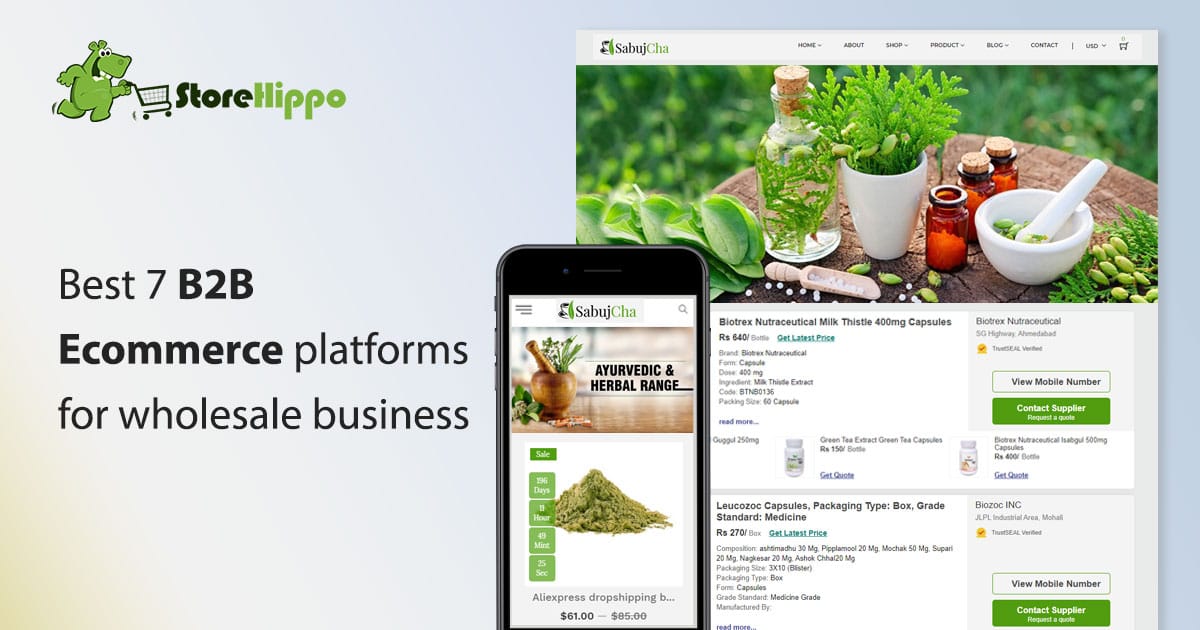

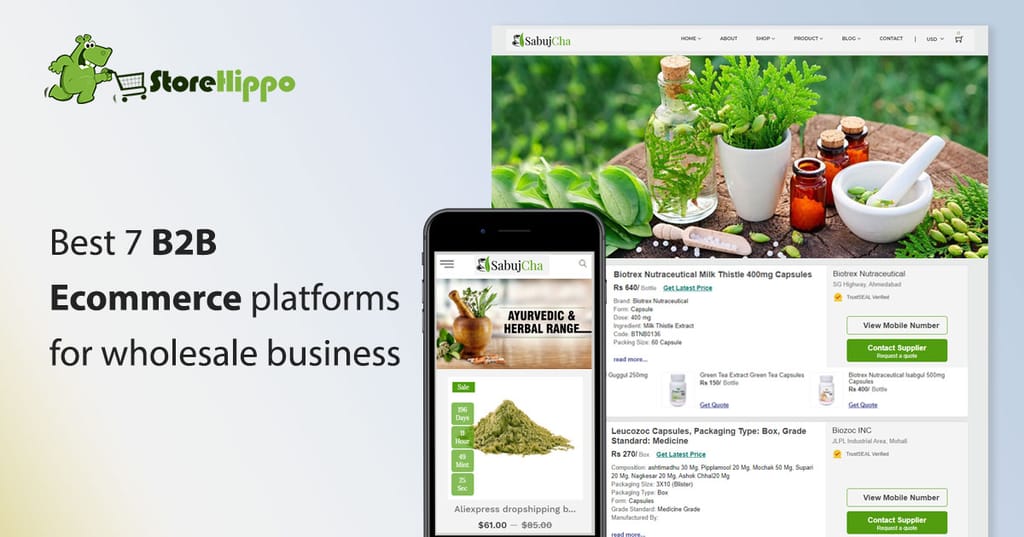












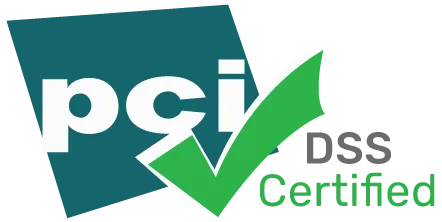
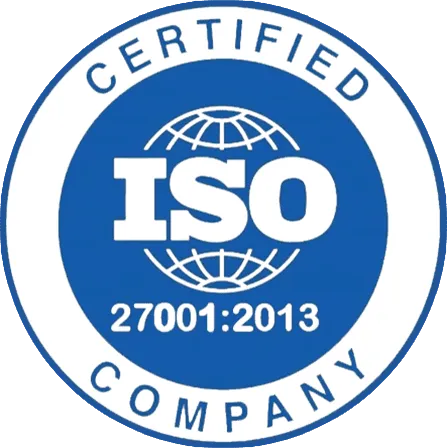


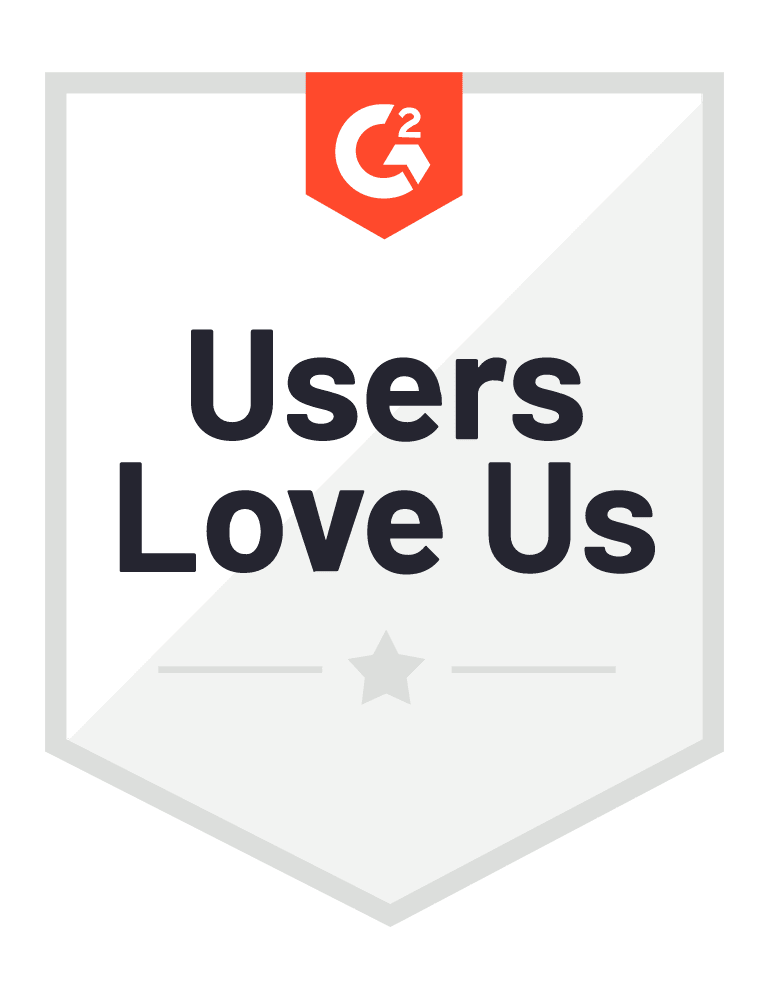
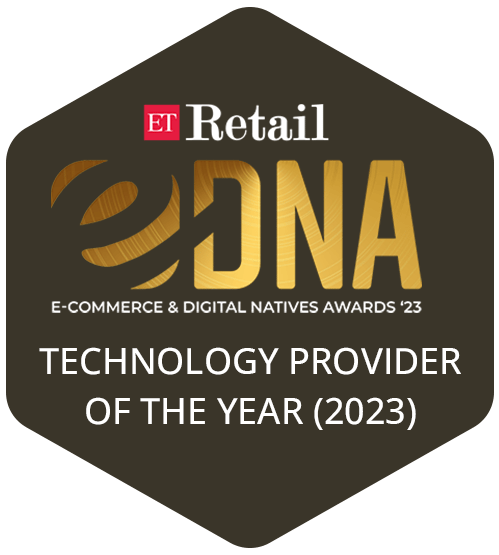
Leave A Comment